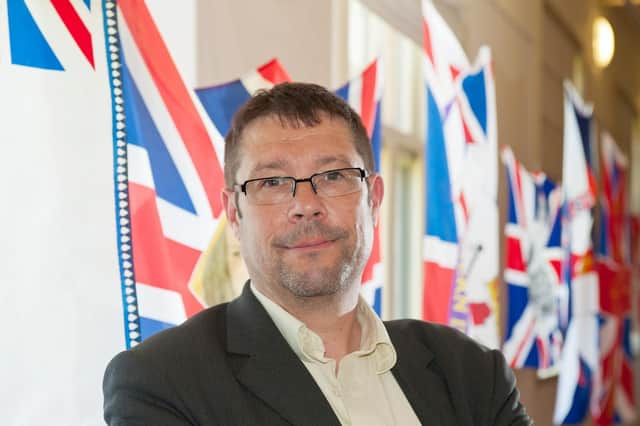Flags report: ‘Belfast-centred focus on flags that ignores rural victims concerns ’


Belfast is mentioned 38 times but Armagh, Fermanagh, Tyrone, Down and Londonderry not mentioned at all in the body of the report.
The report dedicates two chapters to flags, citing flags 262 times and bonfires 135, also deserving of a chapter.
Advertisement
Hide AdAdvertisement
Hide AdHowever, memorials, which the report states are overwhelmingly terrorrelated, are mentioned just 82 times by comparison.
The report said that commissioners were unable to agree to take an audit of all the memorials on public property.
Despite the instability created by paramilitary-style funerals – especially during Covid lockdowns – there is no apparent mention of them.
Terror groups and their victims appear to be given similar weighting in deliberations, with victims mentioned 11 times, republicans nine and loyalists 14.
Advertisement
Hide AdAdvertisement
Hide AdKenny Donaldson, director of services with victims’ group SEFF, said he was “deeply disappointed that little focus has again been given to the concerns of border communities”.
He said victims of the Troubles were particularly concerned by “illegal terror memorials dotted across the landscapes, illegal flags and the continued presence of terror signage, graffiti and other displays from telegraph poles and other public sector-owned property”.
And he questioned why the report did not appear to mention republican and loyalist paramilitary-style funerals “the Bobby Storey funeral being the highest profile case”.
He added: “The report has an underlying narrative of seeking to minimise the impacts of terrorism and of seeking to control the public narrative around how innocent victims should be ‘allowed’ to remember their loved ones.”
MORE NEWS:
Advertisement
Hide AdAdvertisement
Hide AdA message from the Editor:
Thank you for reading this story on our website. While I have your attention, I also have an important request to make of you.
With the coronavirus lockdown having a major impact on many of our advertisers - and consequently the revenue we receive - we are more reliant than ever on you taking out a digital subscription.
Subscribe to newsletter.co.uk and enjoy unlimited access to the best Northern Ireland and UK news and information online and on our app. With a digital subscription, you can read more than 5 articles, see fewer ads, enjoy faster load times, and get access to exclusive newsletters and content. Visit https://www.newsletter.co.uk/subscriptions now to sign up.
Advertisement
Hide AdAdvertisement
Hide AdOur journalism costs money and we rely on advertising, print and digital revenues to help to support them. By supporting us, we are able to support you in providing trusted, fact-checked content for this website.
Ben Lowry
Editor